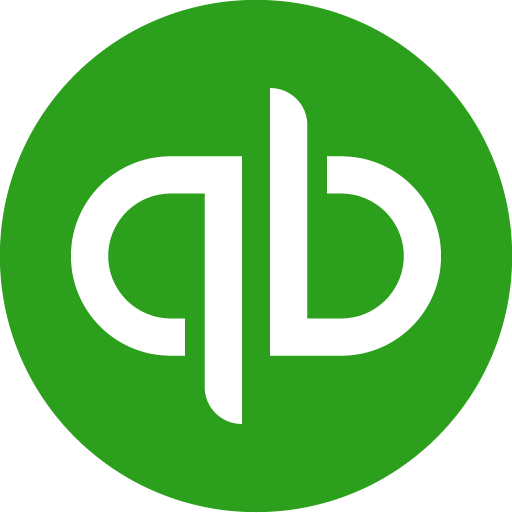Do you struggle to choose between the two Accounting options (NetSuite vs QuickBooks)? The question of which accounting software is superior appears to be in greater demand. Even though NetSuite and QuickBooks are both well-known programs, deciding which one is appropriate for your use case can occasionally be difficult.
Understanding NetSuite vs QuickBooks enterprises will help you choose between them, and this essay aims to do just that. So without further ado, let's get down to today's business.
How is NetSuite Different from QuickBooks?
QuickBooks and NetSuite both assist organizations in managing their cash flow, creating invoices, and tracking expenses. However, there isn't a single accounting system that works for all businesses, so the question still remains – is NetSuite better than QuickBooks? Let’s examine a few distinctions between the two.
1. Holding Firm: Although this distinction is minor, it is nonetheless useful to know that NetSuite is owned by the largest database management company in the world, Oracle, whereas QuickBooks is owned by American business software provider Intuit Inc.
2. Business Size: For small businesses that are just getting started and have a modest income, QuickBooks is appropriate.
The Enterprise Resource Planning (ERP) software NetSuite, on the other hand, is better suited for more complex business requirements including financial administration and data analysis.
Governments and established businesses prefer Netsuite software because it offers customers a 360-degree view of their client interactions or end-to-end business processes.
It provides fully functional accounting, so users do not have to handle numerous systems or applications as they would with QuickBooks. 80% of the studied firms migrated to NetSuite, according to a survey, because they required better reporting and tracking.
In other words, Quickbooks is appropriate if you only require basic bookkeeping and a few accounting functions, but Netsuite is preferable if you require a full-featured accounting program.
3. Key Features: In contrast to QuickBooks Enterprise, NetSuite offers natively integrated ERP, CRM, Ecommerce, SRP, HCM, and more in addition to financial management.
Users of QuickBooks Enterprise are forced to rely on a variety of third-party solutions, which come with the expected drawbacks of inaccurate information, broken interfaces, manual redo, redundant operations, and ever-growing Excel sheets.
This does not provide all of the cloud's advantages and adds yet another vendor to monitor. To clearly illustrate how operations and accounting processes align and what has to be done, NetSuite comes with preconfigured KPIs, workflows, reminders, and configurable dashboards.
The general ledger (GL) in NetSuite offers accounting information at all levels, from the most comprehensive down to individual transactions, enabling you to tailor your GL to your company's needs.
Users can add unique GL impact lines to transactions such as vendor bills or invoices across one or more accounting books, which saves time and effort throughout the account reconciliation, period close, and audit processes.
Additionally, a sizeable selection of reports are available, including parent and subsidiary reports that can be seen in either the home currency or the currency of the company.
Functionality and Features Comparison:
- Accounting and Financial Management:Both NetSuite and QuickBooks offer comprehensive accounting and financial management tools. However, NetSuite is designed for more complex and larger businesses, while QuickBooks is more suitable for small to medium-sized businesses with simpler accounting needs.
- Enterprise Resource Planning (ERP):NetSuite's ERP capabilities are more comprehensive than QuickBooks, offering end-to-end visibility and management of operations, supply chain, and inventory. QuickBooks lacks a full-fledged ERP solution but offers integrations with third-party ERP systems.
- Customer Relationship Management (CRM):NetSuite includes a CRM module that supports sales, customer service, and marketing automation. QuickBooks does not have a built-in CRM but can integrate with third-party CRM software.
- eCommerce and Inventory Management:NetSuite provides an eCommerce platform and inventory management tools, making it suitable for businesses that have an online presence and require inventory tracking. QuickBooks offers basic inventory management features and eCommerce integration through third-party apps.
- Reporting and Analytics:NetSuite offers robust reporting and analytics tools, allowing businesses to create custom reports and real-time dashboards. QuickBooks has reporting capabilities but is less comprehensive and customizable compared to NetSuite.
Customization and Integrations:
NetSuite is highly customizable and supports a wide range of integrations, including third-party apps. This allows businesses to build a tailored solution that meets their unique needs. QuickBooks has limited customization options and supports fewer integrations compared to NetSuite.
Pricing:
NetSuite offers customized pricing based on a company's specific needs, making it more suitable for larger organizations that require a tailored solution. QuickBooks uses a monthly subscription model, with plans starting at $25 per month, making it more affordable for smaller businesses.
Support and Training:
NetSuite provides dedicated support, training, and consulting services, ensuring that users have the resources they need to effectively use the software. QuickBooks offers online support, live chat, and phone support but lacks the extensive training and consulting services offered by NetSuite.
How much does NetSuite Cost per Month?
NetSuite vs. QuickBooks Cost has always been an important consideration when deciding between these two. Compared to NetSuite, QuickBooks is less expensive and simpler to use. As a result, the best program depends on the unique requirements of the organization.
You'll have to pay for a plan with NetSuite based on things like duration, license, users, functionality, configuration, business size, annual revenue, and desired features.
They pair you up with a consultant to guide you through the NetSuite license purchase process. NetSuite refers to this person as a "pricing architect.
Based on the data you give them, their role is to advise you on the best plan to purchase.
The base monthly cost of NetSuite is $999 + $99 per user, according to Better Buys. It's also crucial to keep in mind that NetSuite simply provides a demo tour of the software and not a free edition or trial. To avoid paying for more features than you require during the setup phase, we strongly advise you to exercise extreme caution.
On the other hand, QuickBooks provides a free trial as well as a choice of five subscription levels for various needs they include:
- Self-employed: $15 per month for one user
- Simple Beginning: $25 monthly for one user
- Required: $50 per month for a maximum of three users.
- Additionally: $80 monthly for a maximum of five users
- Advanced: $180 monthly for a maximum of 25 users
This makes things considerably easier and is much more visible.
Your business needs and budget should be taken into consideration while choosing between a robust all-in-one solution like Oracle NetSuite and a cost-effective and efficient option like Quickbooks.
Does NetSuite Work with QuickBooks?
It is possible to link Netsuite and Quickbooks. People who have used Quickbooks for a long time yet need access to more enterprise-level programs will find this integration useful.
To do this companies need to involve the use of third party softwares. As a result, imports from QuickBooks and vice versa will not be supported by NetSuite.
Most businesses often begin using QuickBooks and transition to NetSuite as they grow. When they have various businesses process differing volumes, some large organizations and holding companies might use both accounting programs.
However, there are several software programs that do support the combination of both.
These programs make it simple to import just newly created or changed records from NetSuite to QuickBooks Online and vice versa.
They expedite the transition of your company from NetSuite to QuickBooks and ensure flawless data flow.
Software that facilitates the integration of QuickBooks and NetSuite includes;
- Celigo, which syncs Customers, Employees, Accounts, Items, Vendors, Sales Receipts, Invoices, Classes, Departments, and Journals between QuickBooks and NetSuite, is software that aids with this integration.
- Clarity: This also covers the sharing of data and the automation of corporate processes.
- Others include Weighpay and Skyvia
Is Oracle Better than QuickBooks?
Oracle Financials Cloud is a comprehensive and integrated financial management solution that aids today's fast-growing and dynamic organizations in making better decisions, improving efficiency, cutting costs, and continuously innovating. It lays the groundwork for good governance and consistent growth.
The entire small business accounting solution QuickBooks, on the other hand, enables customers to manage all of their financial data on a single platform with real-time dashboards and reports.
When you require a trustworthy accounting software item which is superior, the Oracle E-Business Suite or QuickBooks?
Compared to QuickBooks Online, which has 5137 reviews and a rating of 4.3 / 5 stars, Oracle Fusion Cloud ERP has 50 reviews and a rating of 4.24 out of 5 stars. And the E-Business suite from Oracle Financials is a more feature-rich, robust, and user-friendly program with superior reporting capabilities. This includes tools for creating dashboards, displaying data, and configuring workflows.
However, QuickBooks has an advantage over Oracle in that it is web-based, and supports iPhone and Android apps, and Oracle only supports web-based.
Only QuickBooks provides a free account, even though both are subscription-based and provide free trials.
While Oracle has only 33 total integrations to date, QuickBooks has 927 total integrations, including those with industry heavyweights PayPal and Adobe.
As was already mentioned, QuickBooks has four pricing tiers that require a monthly membership and offer clarity in pricing. On the other hand, for pricing information specific to your business, you must speak with a member of the Oracle E-Business suites support team. This is because the Oracle E-Business suites are offered on a quotation basis.
Our professional opinion is that these are two excellent account software options, and your decision should be dependent on the requirements of your business. Small, medium-sized, and occasionally large enterprises are the ideal candidates for using QuickBooks. But with more extensive accounting tools, Oracle E-Business Suites better suits the needs of mid and Large Businesses.
Conclusion:
When choosing between NetSuite and QuickBooks, consider the size of your business, the complexity of your accounting and operational needs, and your budget. NetSuite is best suited for mid to large-sized businesses and enterprises that require a comprehensive, customizable, and integrated solution, while QuickBooks is more appropriate for small to medium-sized businesses with simpler accounting needs and a smaller budget.
In summary, both NetSuite and QuickBooks have their unique strengths and cater to different types of businesses. By evaluating your organization's needs and resources, you can make an informed decision and select the software that will best support your business growth and success.
LiveFlow
With the help of LiveFlow, businesses can include real-time data from their banks, payment systems, and accounting services into their bespoke reports, automating processes, consolidating accounts, and encouraging greater internal communication.
Actuals are no longer entered manually as they once were. Create your budget and attach actual data in only a few clicks.
The previous method involved downloading cumbersome CSV files with disorderly, jumbled data. Why LiveFlow is practical: Google Sheets allows for the straight import of data from QuickBooks.
Avoid week-long consolidation processes. There is no need to return to it after it has been set up. Without navigating back to your accounting program, you may see your underlying transactions. Work on Google Sheets for everything.
LiveFlow is the best tool for business growth. Spend more time learning new things and less time doing manual tasks. Turn your money into a growth engine by using intelligent, cloud-based automation that saves you hours of time-consuming work.
LiveFlow only gets better as it adds thousands more Templates. Decide the report you wish to automate:
- Profit and Loss
- White sheets
- Cash Flow, among a variety of others.
Why are you being headstrong? Join several groups, including Monthend, FinClarity, Crunchfirm, and many more. Book a free live session with us



.png)





